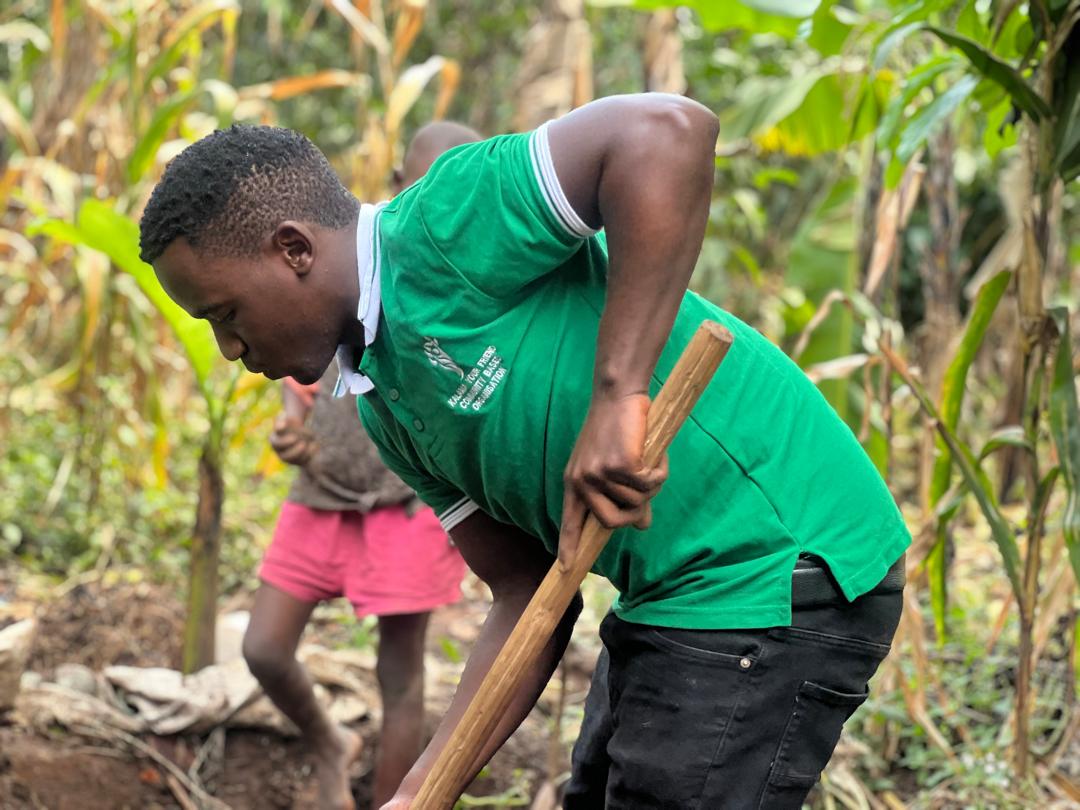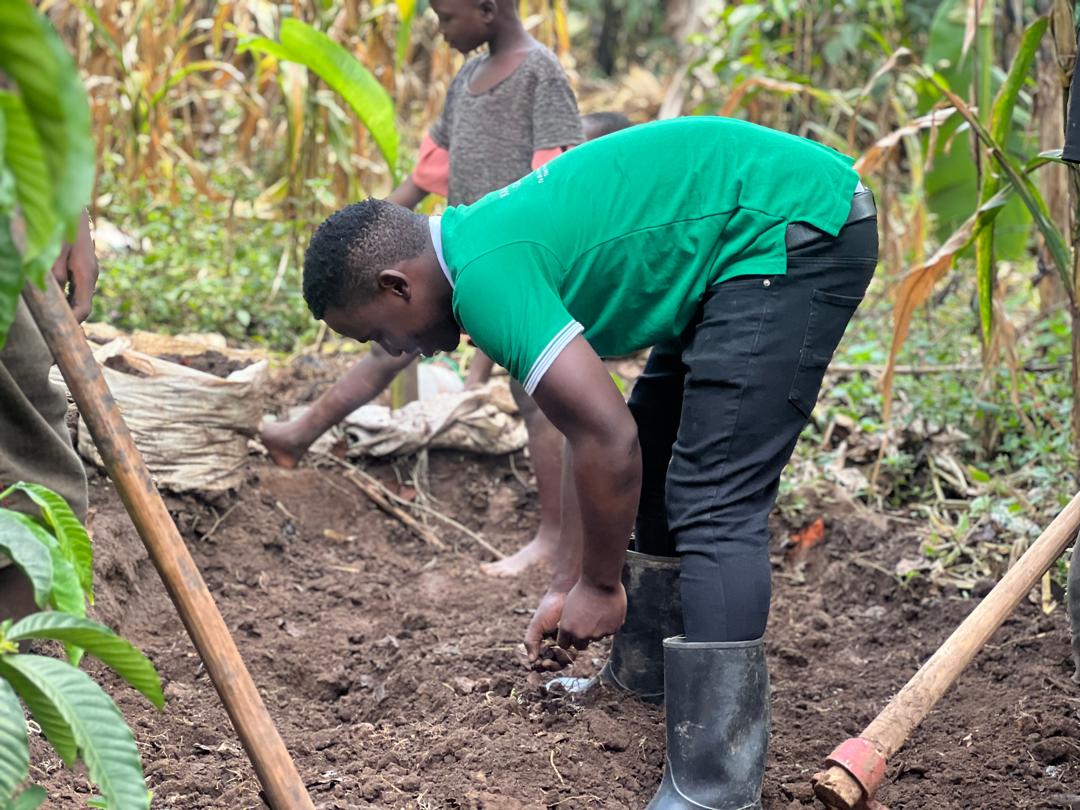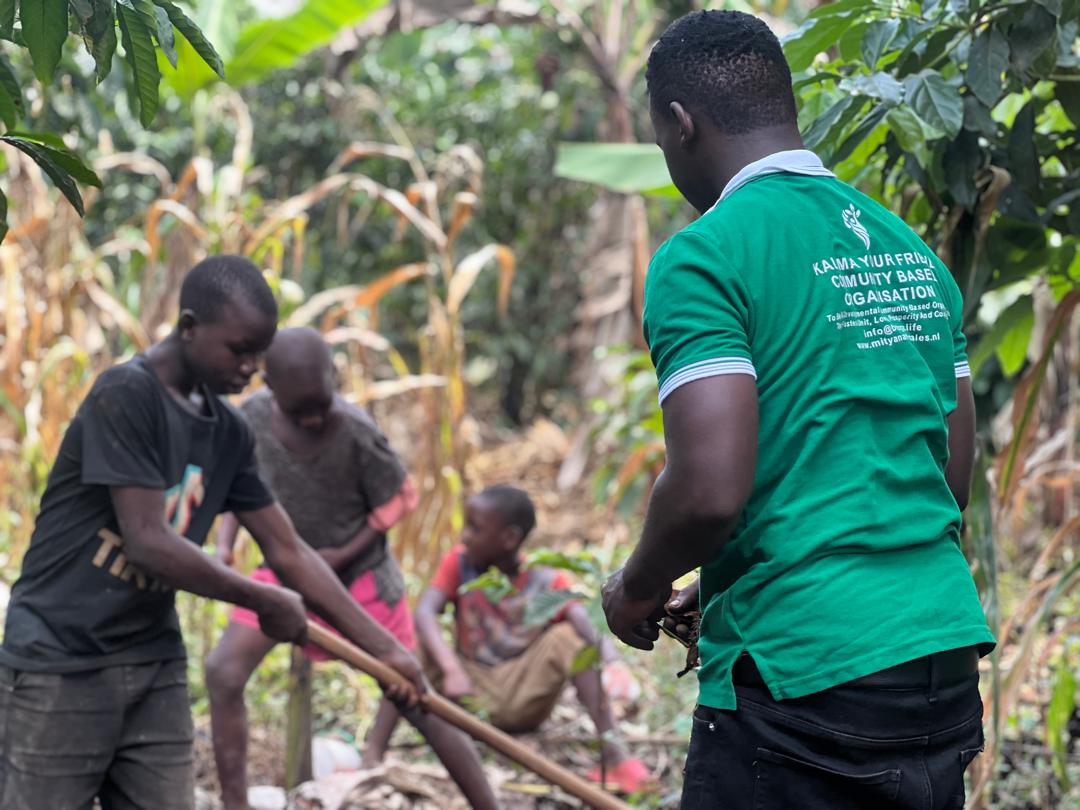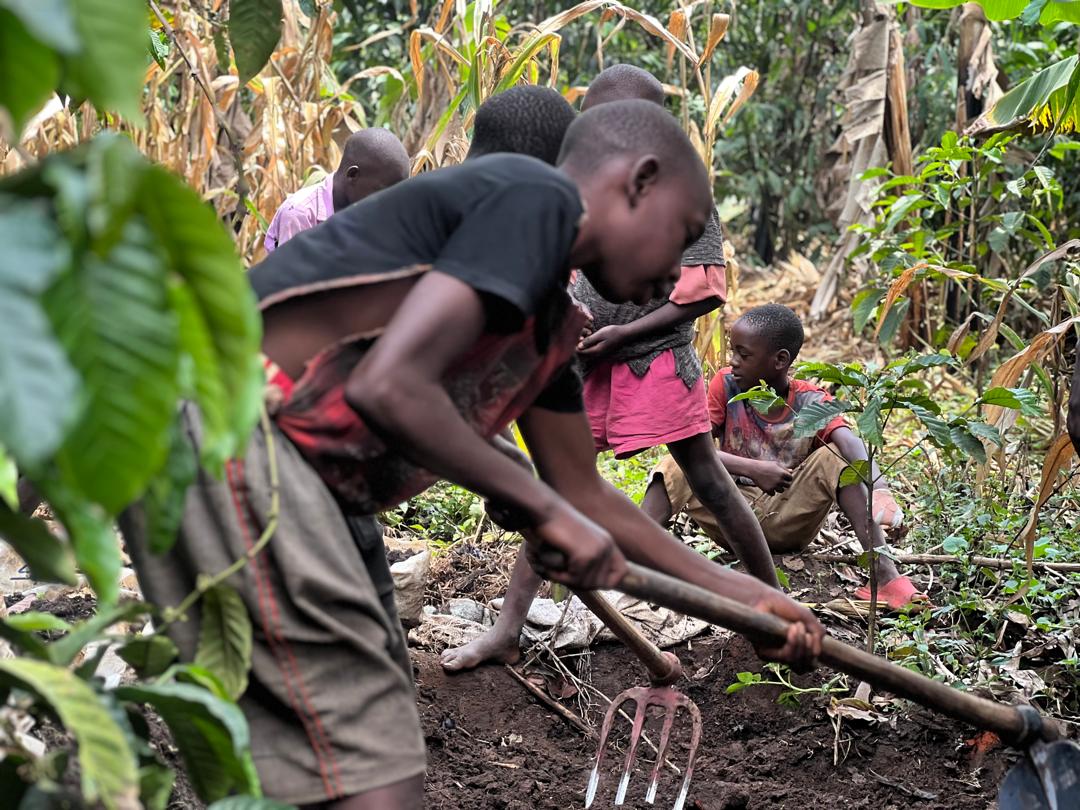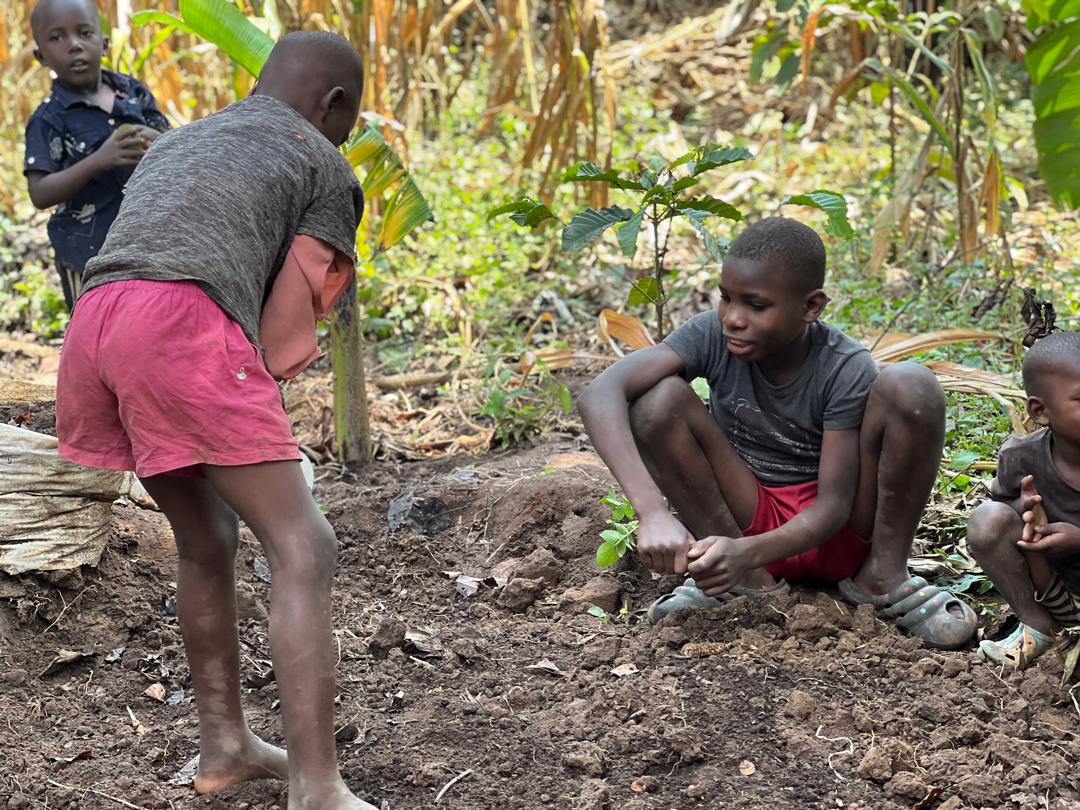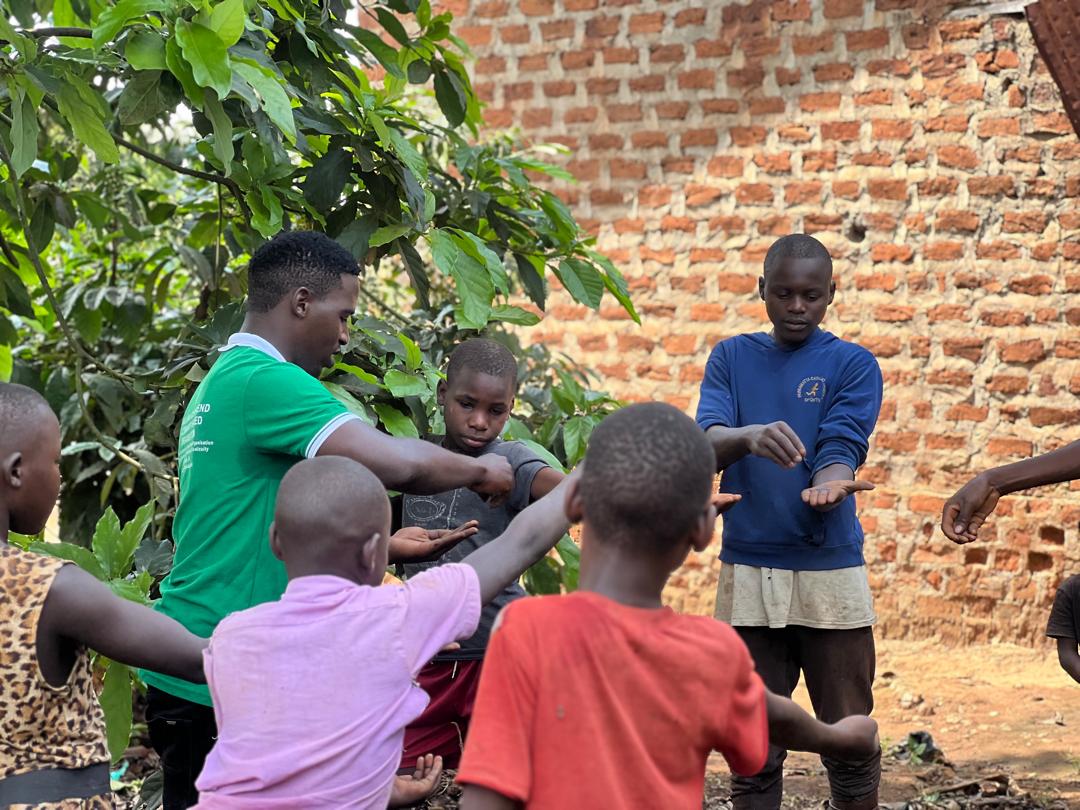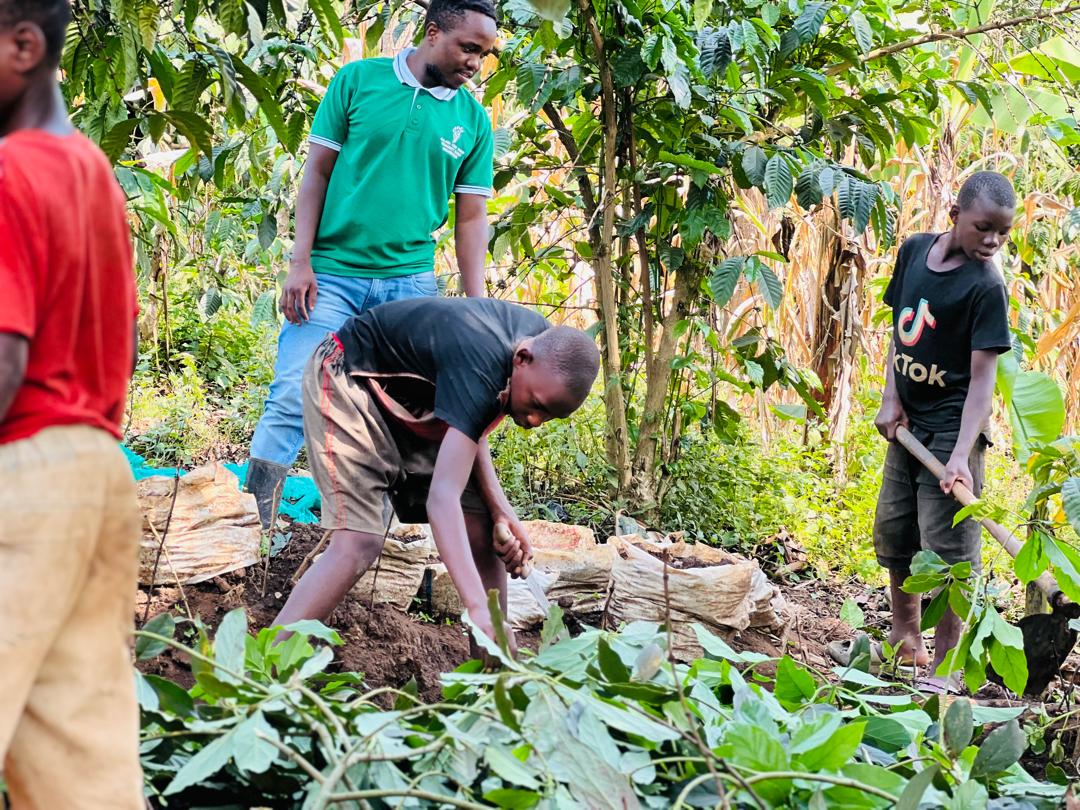project description
We are continuously gathering information on agro topics and further developing the agro section of our online school. This will enable us - as well as many others around the world - to benefit from this free available knowledge.
Kalama Your-Friend CBO is developing an online agricultural education platform to provide free access to knowledge on sustainable and economic farming practices for communities around the world. The project aims to empower individuals and communities to grow their own food in an environmentally responsible manner, ensuring food security and economic stability.
The education section of our online school will include topics like:
- Home growing
- Land exploitation
- Sustainable farming
- Organic treatment
- Crop rotation
- And many more
Challenges
- Limited access to agricultural knowledge: Many communities, especially in remote areas, lack access to information on modern, sustainable farming techniques.
- Unsustainable farming practices: Traditional farming methods often lead to soil degradation, reduced yields, and negative environmental impacts.
- Lack of financial resources: Vulnerable communities may lack the financial means to invest in sustainable farming technologies and practices.
Solutions
- Develop an online agricultural education platform: The project will create a comprehensive online school covering topics such as home growing, land exploitation, sustainable farming, organic treatment, and crop rotation.
- Provide free access to agricultural knowledge: The online school will offer free access to educational materials, enabling communities worldwide to benefit from the available knowledge.
- Promote sustainable and economic farming practices: The project will focus on teaching and implementing sustainable farming techniques that are economically viable for communities.
Scope
- Soil health management
- Pest and disease control
- Crop diversification and rotation
- Sustainable harvesting techniques
Project Breakdown
- Content and Planning
- Conduct needs assessments and gather feedback from the community
- Develop a detailed project plan, including timelines, milestones, and resource allocation
- Curriculum Development
- Collaborate with subject matter experts to create a comprehensive curriculum
- Design learning materials and resources that are engaging, interactive, and accessible
- Implementation
- Recruit and train facilitators to deliver the training program
- Conduct the training sessions, ensuring active participation and engagement from the women and children
- Monitor and evaluate the progress of the participants, providing support and guidance as needed
- Organize field visits and hands-on activities in the demonstration garden
- Conduct a final assessment and award certificates to successful participants
Expected from facilitator
- Gather information on agro topics: The project team will continuously research and gather information on sustainable farming practices to develop the online school's curriculum.
- Create educational materials: The team will develop engaging and informative educational materials, including videos, articles, and interactive modules, to teach sustainable farming techniques.
- Establish partnerships: The project will seek partnerships with agricultural experts, research institutions, and local organizations to ensure the accuracy and relevance of the educational content.
- Promote the online school: The project will actively promote the online school through various channels, such as social media, community outreach, and partnerships with local organizations.
- Monitor and evaluate: The project will regularly monitor the impact of the online school and evaluate its effectiveness in promoting sustainable farming practices and improving food security
- Conduct community needs assessments and gather feedback from the community
- Report findings to the review committee
- Collaborate with subject matter experts to create a comprehensive curriculum
- Design learning materials and resources that are engaging, interactive, and accessible
- Report on curriculum development progress to the review committee
- Conduct training sessions for children and women, ensuring active participation and engagement
- Monitor and evaluate the progress of the participants, providing support and guidance as needed
- Report on training session progress to the review committee
- Organize field visits and hands-on activities in the demonstration garden
- Monitor and maintain the demonstration garden
- Report on demonstration garden progress to the review committee
- Conduct a final assessment and award certificates to successful participants
- Report on certification and final assessment outcomes to the review committee
- Bi-weekly progress reports to the review committee
- Final project report, including outcomes and recommendations, to be submitted by the deadline
Training sessions children: twice a week, for 12 weeks for a group of 30 children Training sessions adults: twice a week, for 12 weeks for a group of 15 women, another group starting 4 weeks later
Definition of "Done"
- Curriculum Development: A comprehensive curriculum covering all aspects of the project scope has been developed and approved by the project team.
- Learning Material Creation: High-quality learning materials, including manuals, guides, and multimedia resources.
- Participant Engagement: A total of 30 women and 30 children have actively participated in the training program, demonstrating a deeper understanding of their homes and farming sites, as well as the surrounding landscapes.
- Participants have been trained practical skills related to soil health management, pest and disease control, crop diversification, and sustainable harvesting techniques.
- Demonstration Garden: The children at the orphanage have successfully diversified their crop production in the demonstration garden, showcasing their newly acquired knowledge and skills.
- Certification: 30 women have been trained and certified in sustainable agriculture practices, empowering them to become leaders and trainers within their communities.
Impact assessment
- to be defined
